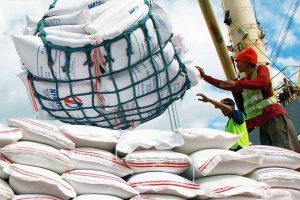THE Philippines’ dependence on imports to address food shortages leaves it exposed to price shocks and food market manipulation, the World Food Programme (WFP) said.
In a report, “Feeding Resilience: Unraveling the Asia-Pacific Food Crisis,” the WFP said the Philippines’ “unique contextual specificities of being a net food importer, particularly for staple commodities like rice, contribute to vulnerabilities in its food system.”
Heavy reliance on food imports, especially staples like rice, expose the country to price manipulation and artificial shortages, leading to economic impacts and corruption within government food procurement programs,” the WFP said.
“Opportunistic traders exploit market dynamics by hoarding essential supplies, exacerbating fluctuations in prices and availability,” it added.
Earlier, President Ferdinand R. Marcos, Jr. issued Executive Order (EO) No. 20 to ease the import process for agricultural products.
Farmers have opposed the EO, citing further exposure to smuggling and price manipulation.
Food inflation averaged 8% last year, a major factor being onion prices, which hit P600 to P700 a kilogram. A House of Representatives investigation pointed to an alleged onion cartel for the price surge.
Meat and egg production are also under strain from bird flu and African Swine Fever, it said.
It also noted the high costs of animal feed, which accounts for up to 70% of total production expenses in poultry, livestock, and aquaculture operations.
The WFP also cited a decline in the Philippines’ “resilience capacities” for food security, while its infrastructure and social capital have “better coped” with shocks.
“Unequal capacities among local government units (LGUs) in implementing government programs highlight the need for a more inclusive approach for urban and rural populations,” the WFP said.
LGUs should expand urban gardening, diversify staple food promotion, and strengthen local governance to ensure food security and nutrition, it said.
The Philippines was also noteworthy for its high consumption levels of food and beverages with poor nutritional value, such as fast food, processed food, and sugar-sweetened beverages.
“During the pandemic, the government’s distribution of food baskets aimed to assist the population in meeting its food needs, but unfortunately, many of these provisions failed to offer nutritious options,” according to the report.
“Despite the existence of a national policy on sugar sweetened beverages, with proceeds directed towards public health nutrition, the industry has seized the opportunity during this period to increase its sales.” — Beatriz Marie D. Cruz
